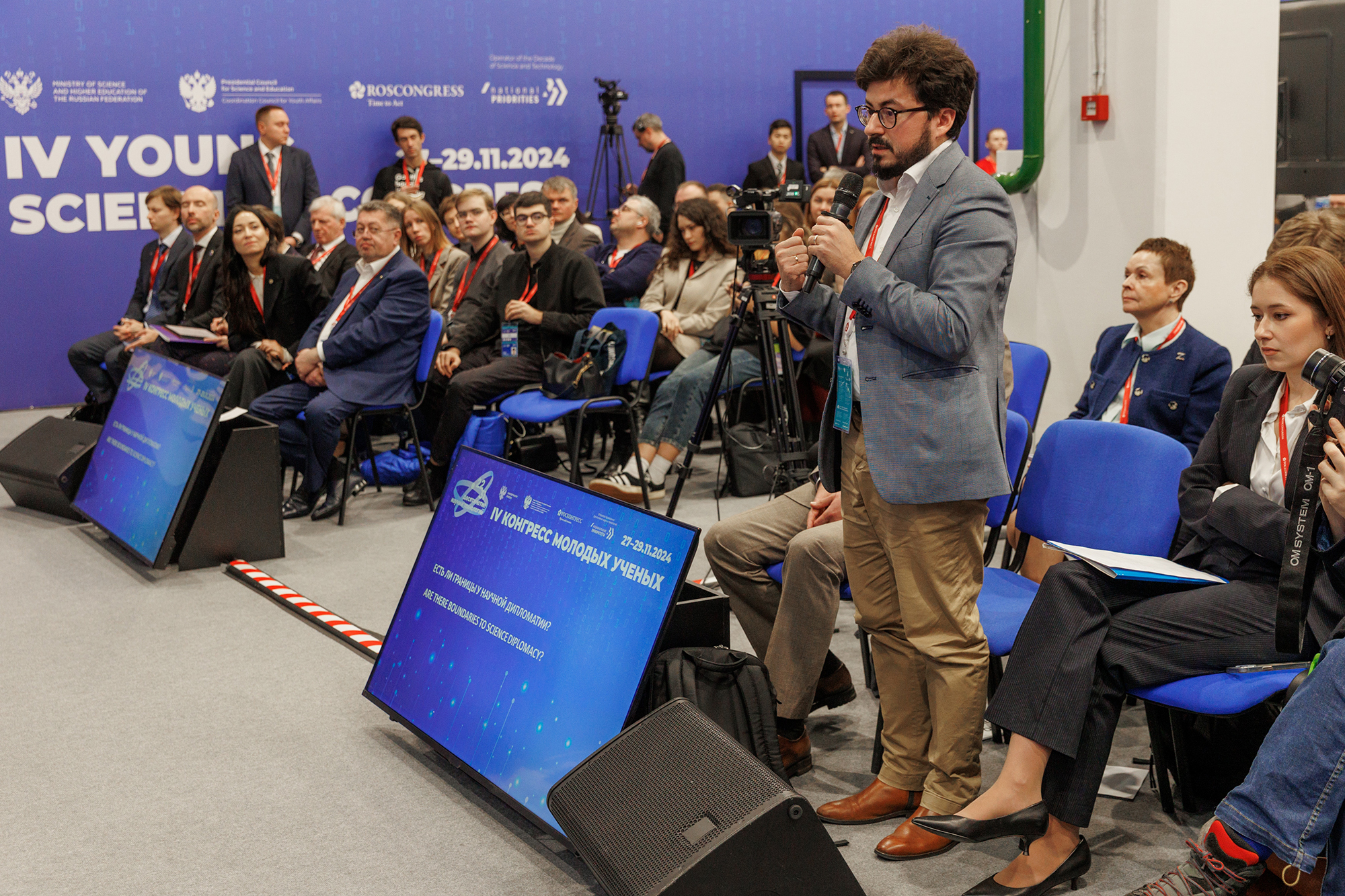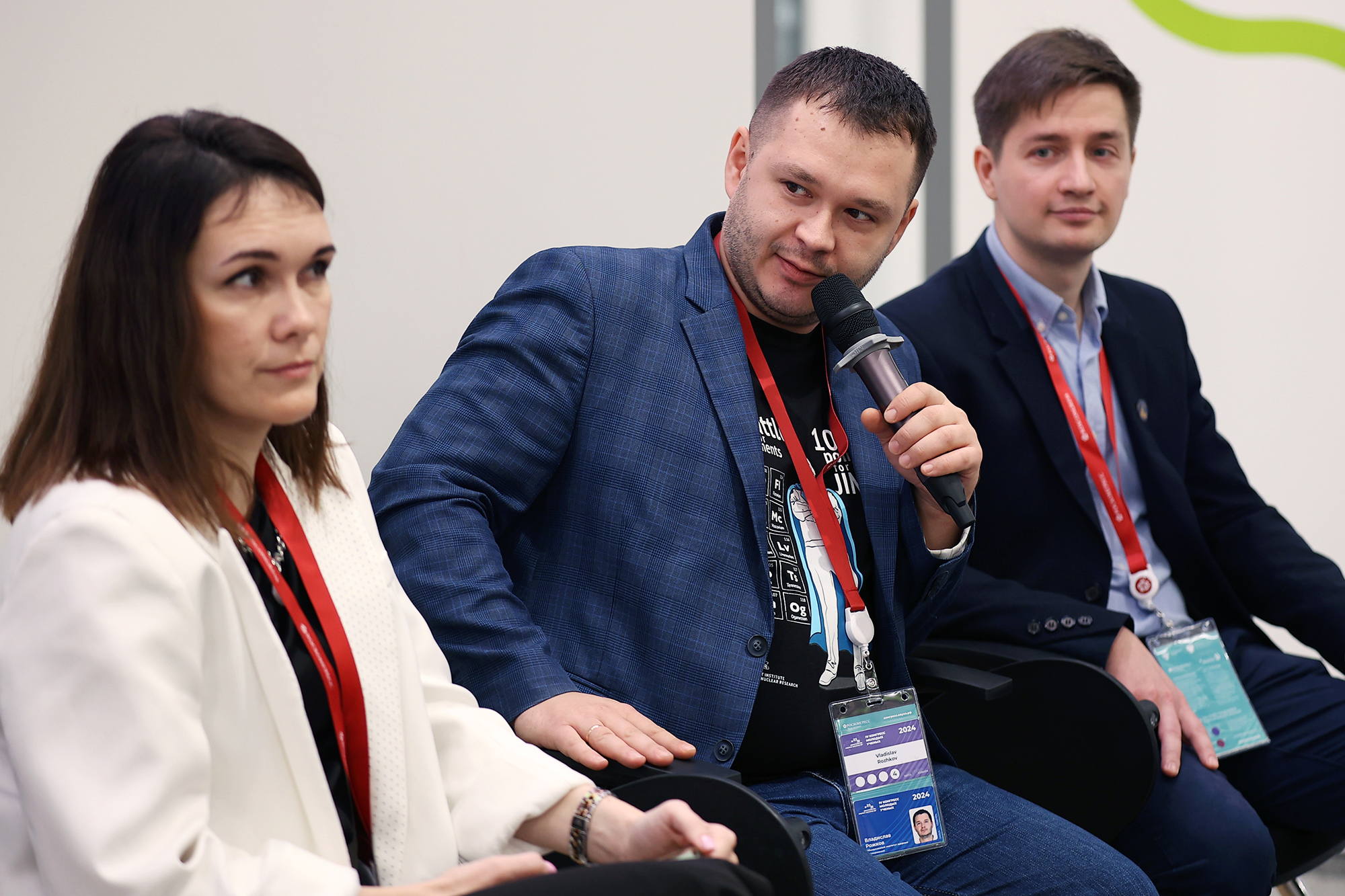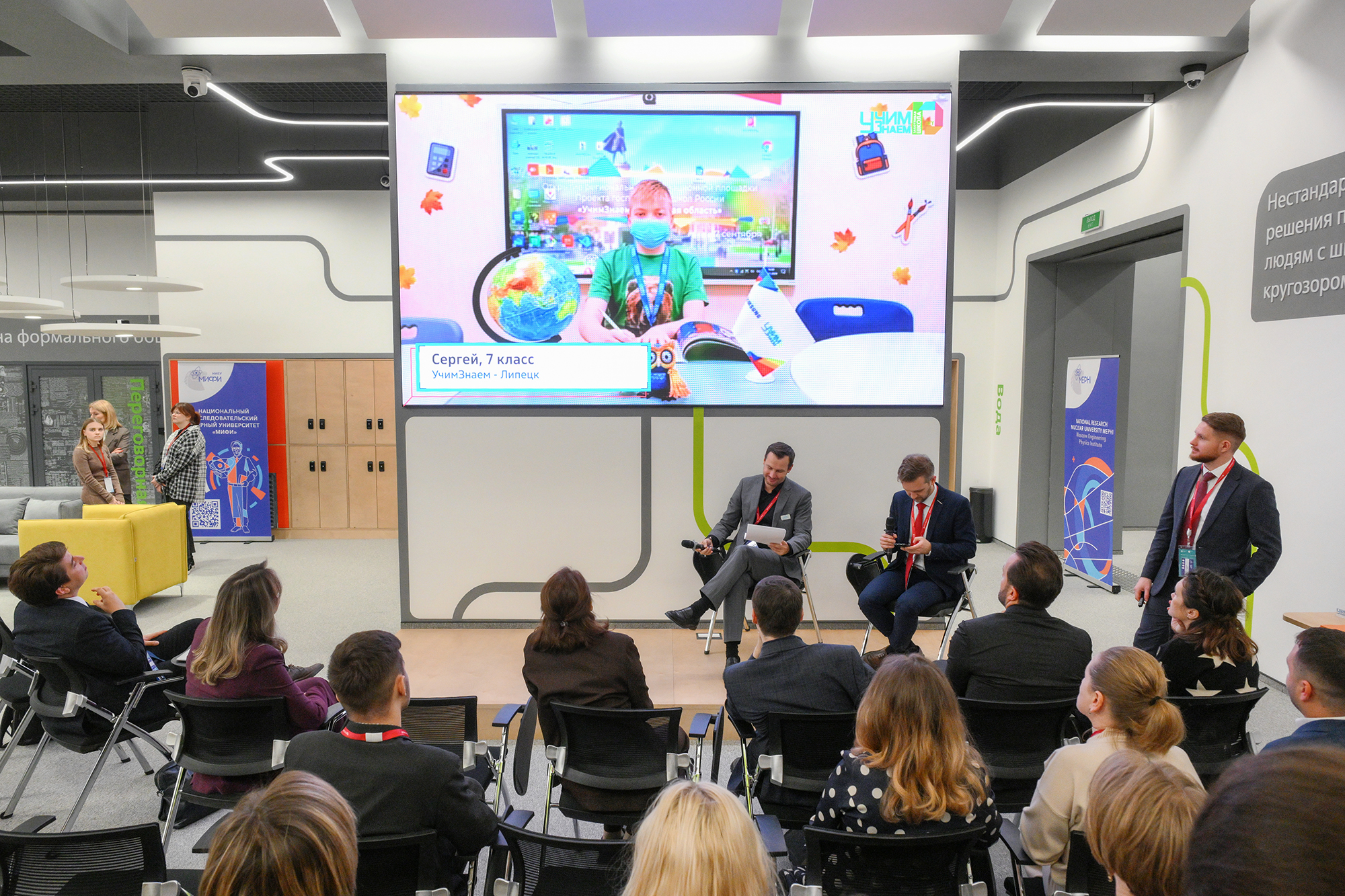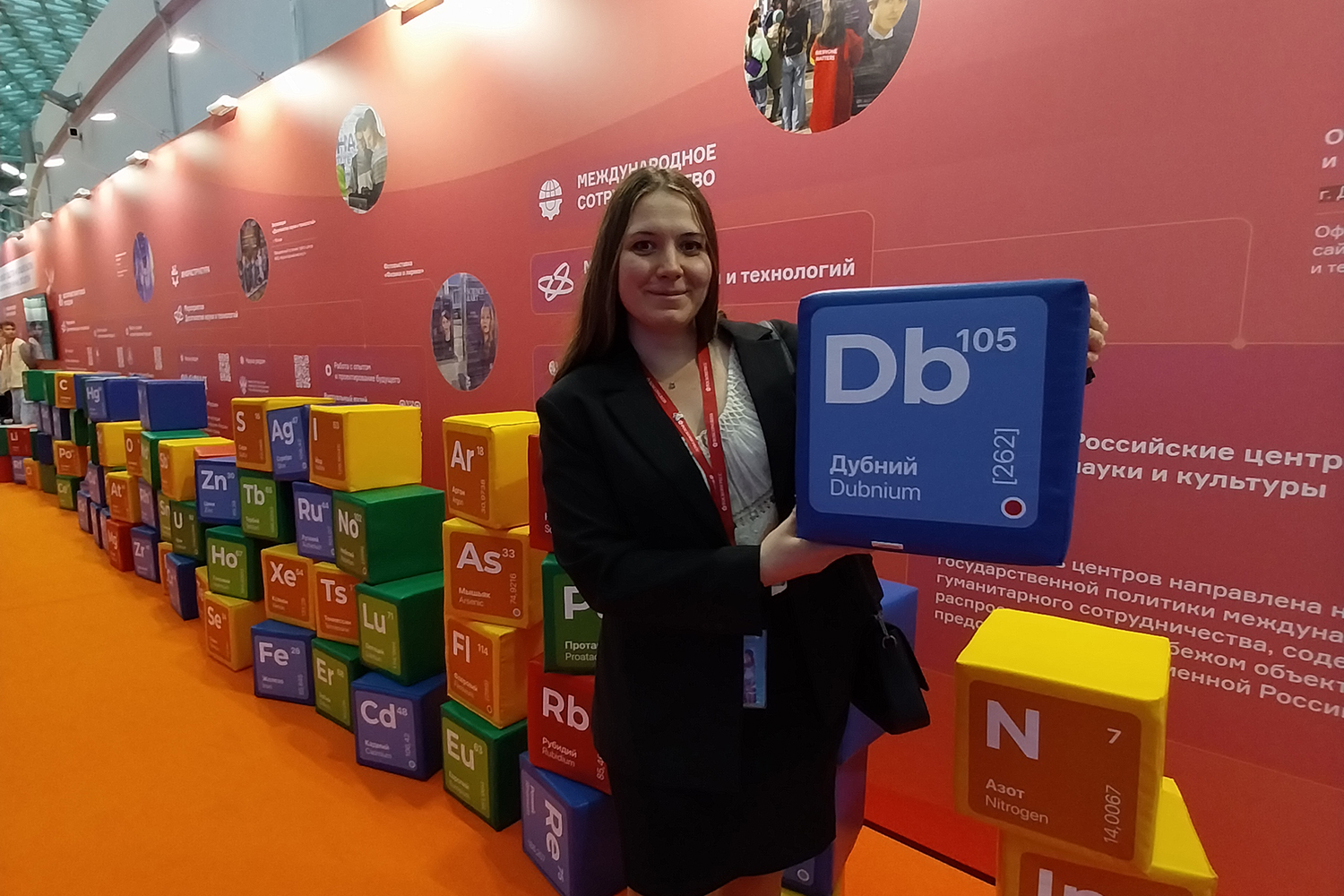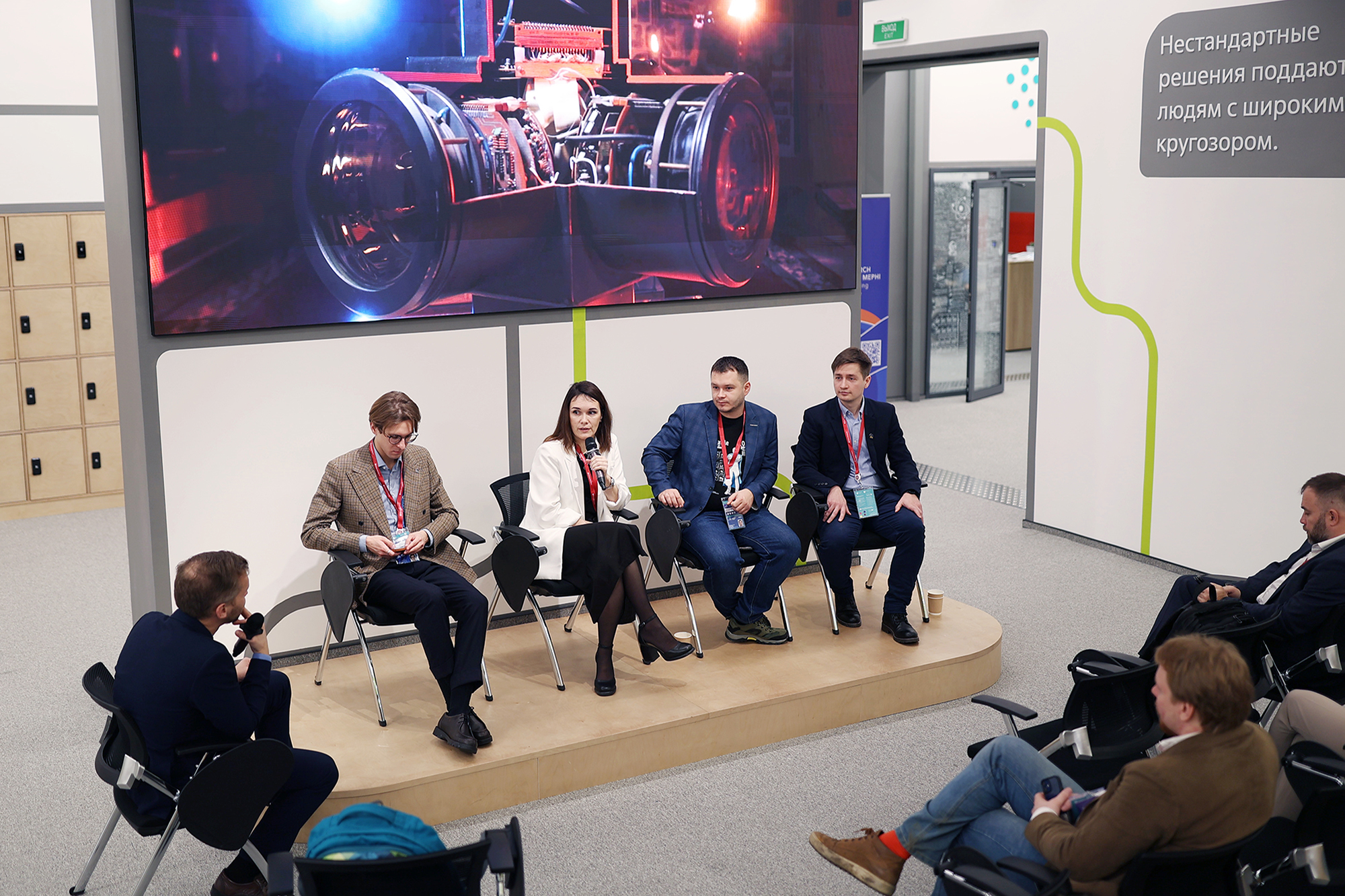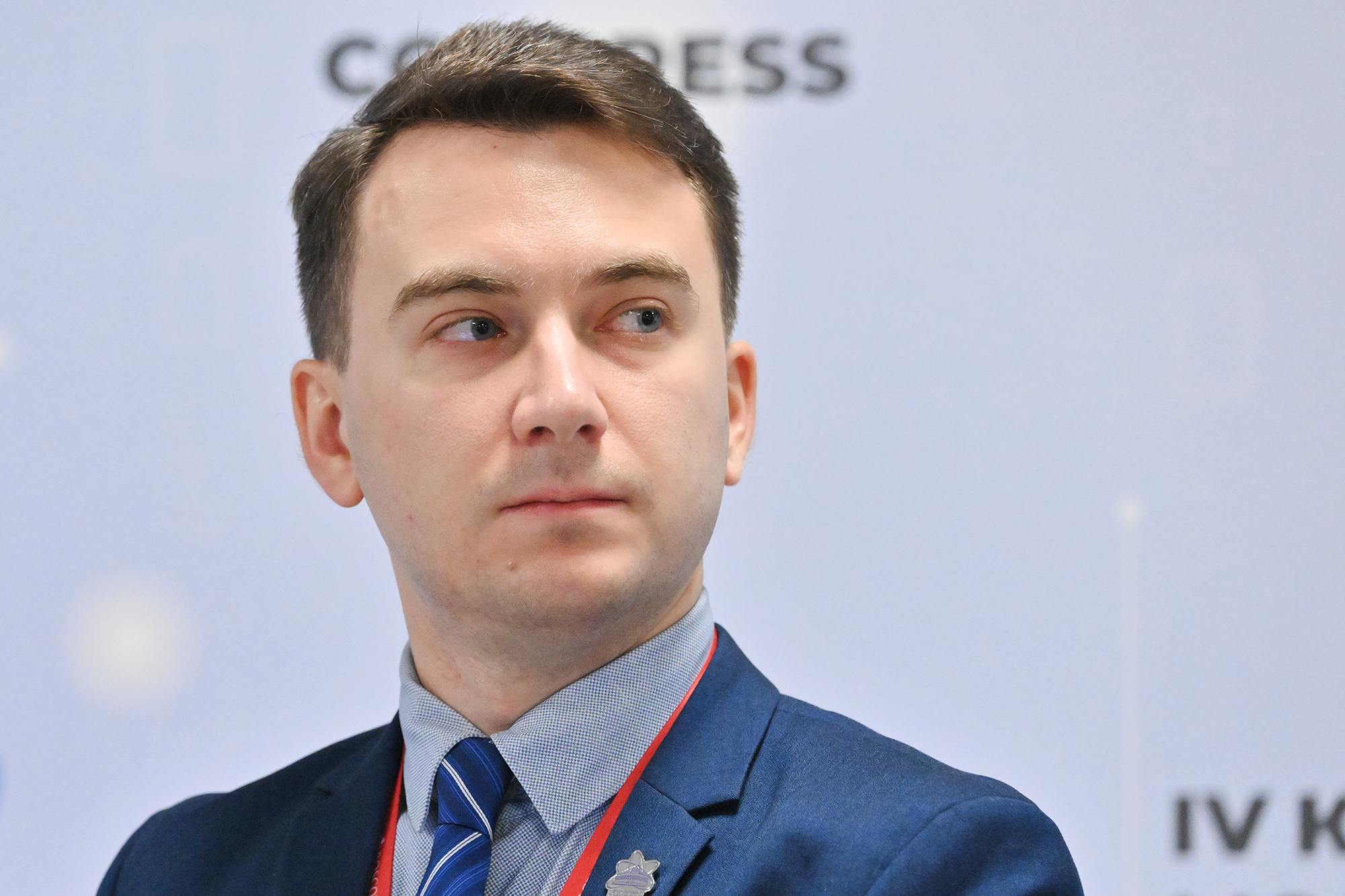JINR at 4th Young Scientists Congress
News, 03 December 2024
From 27 to 29 November, Sirius Federal Territory, Russia, hosted the fourth Young Scientists Congress, which gathered specialists of more than 60 countries. A delegation of the Joint Institute for Nuclear Research actively participated in several panel discussions on science diplomacy, nuclear medicine, and scientific and technical international cooperation, along with a meeting of councils of young scientists representing organizations and universities in Russia and the BRICS countries.
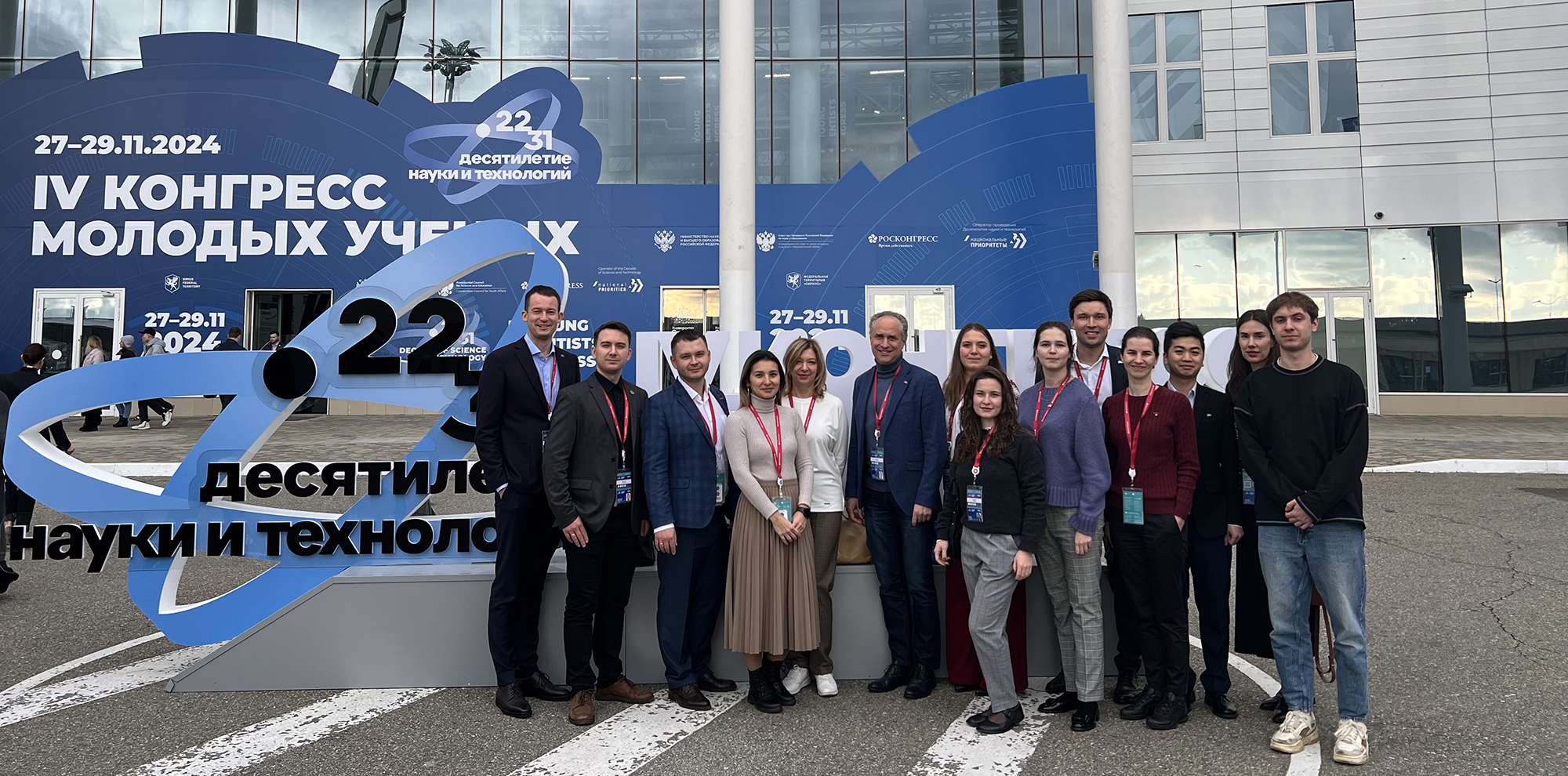 Photo: © JINR; Vitaly Timkiv, Ekaterina Chesnokova, Kristina Kormilitsyna/Young Scientists Congress photobank
Photo: © JINR; Vitaly Timkiv, Ekaterina Chesnokova, Kristina Kormilitsyna/Young Scientists Congress photobank
As part of the first day’s programme, International Cooperation Advisor to the Director of the Joint Institute Irek Suleymanov took part in the panel discussion “Are there boundaries to science diplomacy?”. One of the topics was the application of scientific diplomacy in international relations.
Irek Suleymanov noted that in 2021, the Committee of Plenipotentiaries of the Governments of the JINR Member States adopted the Sofia Declaration on the Value of International Integration in Science and Technology, one of the provisions of which was the development of scientific diplomacy tools through JINR. “It is becoming increasingly clear that all those doing science, both leaders and researchers, should keep diplomatic terminology in sight. This means all of us should integrate the concept of scientific diplomacy into research environment,” Irek Suleymanov emphasised. “It is important to consider the perspectives of the scientific community when shaping approaches at the intersection of science, technology, and politics”.
Chair of the Council of the JINR Association of Young Scientists and Specialists (AYSS), a researcher at the Laboratory of Nuclear Problems Vladislav Rozhkov was the Institute’s most active representative. He took part in three different events of the Congress during the three days.
At the session “Physicists and doctors: how innovations are born in nuclear medicine” on 27 November, he spoke about the Joint Institute’s innovative developments, including the project of the MSC-230 Superconducting Proton Cyclotron for flash radiotherapy of cancer patients and new algorithms of analysing materials for energy-sensitive tomography developed in collaboration with Moscow State University (MSU) scientists. The joint development of a semiconductor detector that allows counting single photons by the JINR and Belarus scientists was highlighted as well. Such detectors will be able to “colourise” X-ray images in the coming decades.
On Thursday, 28 November, at the event “Young scientists for children: creating inspiration and passion for science since school” as part of the UchimZnaem hospital educational project, young researchers answered the questions of children undergoing long-term treatment in medical organizations throughout Russia. Vladislav Rozhkov answered the question of a third-grader from Moscow, “Why do rainbows have seven colours?”, explaining that the sun’s “white” light breaks into components that have different wavelengths. There is, in fact, an infinite number of these colours, but 330 years ago, Isaac Newton, “coloured” the rainbow in the colors that we know now for convenience, correlating them with the notes in music.
On the final day, the AYSS JINR Council Chair participated in a meeting of councils of young scientists and student scientific communities. The meeting brought together representatives of nuclear organizations and universities from Russia and the BRICS countries. The participants discussed the role of nuclear physics in modern science, taking into account digital transformation, along with its development prospects and impact on the country’s economy. In addition, they shared information on how the councils of young scientists promote interdisciplinary cooperation, recruitment and retention of personnel.
On 29 November, AYSS JINR Council Deputy Chair, a senior researcher at the Laboratory of Neutron Physics Alexander Nezvanov participated in the discussion “Young scientists: opportunities for international cooperation”. In his speech, he highlighted the experience of the Joint Institute in attracting foreign specialists to work in an international intergovernmental organization in Russia. They were provided with useful information about the scientific and educational programmes implemented by the JINR University Centre. The START on-site internship programme, has attracted about 400 students from almost 30 countries to Dubna over the yen years since its establishment. More than 300 young professionals from almost 40 countries have participated in the INTEREST online internship programme dating back to 2020. According to the AYSS Council Deputy Chair, such initiatives are primarily aimed at promoting international cooperation and increasing the number of countries the Institute partners with.
“Today, the creation of a modern scientific infrastructure, including laboratories with the most advanced equipment and megascience projects, is a key factor in attracting specialists from other countries who seek to fully realise their scientific potential,” Alexander Nezvanov stressed. In his opinion, attracting young scientists from other countries to Russia and retaining them is a complex task requiring consolidated efforts of scientific organizations, municipal and state structures. It is only joint work that will make it possible to develop effective mechanisms that will significantly increase the number of specialists from other countries.
On 30 November, after the event, a scientific brunch took place at the Sirius Research and Development Centre with the participation of the Congress organizers, Rosatom, and representatives of JINR, the MSU Institute of Nuclear Physics, the Kurchatov Institute, Moscow Engineering Physics Institute (MEPhI), and Novosibirsk State University. The parties discussed issues of cooperation between the youth scientists’ associations and entrepreneurs focused on creating innovative products as part of the Science and Business initiative of the Decade of Science and Technology. One of the topics was the Youth Pilot Projects initiative, launched following the Chain Reaction satellite event of the Congress. In addition, the participants touched upon the development of hard and soft skills as part of the Third Semester initiative aimed at developing seasonal schools for undergraduates, postgraduates, and young scientists. They presented examples of successfully improving the effectiveness of the work of young scientists’ councils and methods of attracting and motivating young specialists. The participants shared cases demonstrating how to make the Council of Young Scientists an effective scientific force and what methods to use to attract and motivate young professionals and researchers.
“Many participants noted the success of the visits of representatives of the councils of Russian higher education institutions and research institutes to JINR organized by AYSS. We will soon welcome a delegation from Obninsk. We have agreed to meet with colleagues from Rosatom, representatives of the councils of young scientists and student scientific societies of MSU, MEPhI, and the Moscow Institute of Physics and Technology, along with specialists from Sarov MSU branch,” Vladislav Rozhkov said.
The Congress of Young Scientists is a key annual event of the Decade of Science and Technology in Russia announced by Russian President Vladimir Putin in 2022. The Congress brings together prominent leaders of Russian science, representatives of the most influential scientific schools from different regions of the country, scientific and educational organizations, government authorities, industrial partners, business representatives, and state corporations, as well as, most importantly, young scientists, grant holders, students, and schoolchildren from Russia and other countries.
The Young Scientists Congress is organized by the Roscongress Foundation, the Ministry of Science and Higher Education of the Russian Federation, and the Coordinating Council for Youth Affairs in the Scientific and Educational Spheres under the Council for Science and Education under the President of Russia. The National Priorities company is responsible for the initiatives of the Decade of Science and Technology.
